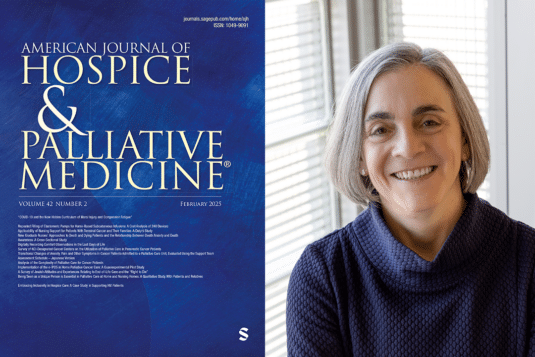This article presents an analysis of how artificial intelligence (AI)–generated medical responses are perceived and evaluated by nonexperts. The increased trust placed in inappropriate AI-generated medical advice can lead to misdiagnosis.
Patient Experience
Hospitalized patient portal access in the post-information blocking rule era
This single-center, cross-sectional observational study highlights low patient portal utilization among hospitalized patients and disparities in access based on race/ethnicity, gender, age, and insurance status.
Users’ perspectives on a demonstration to increase shared access to older adults’ patient portals
As shared access uptake remains low, the Coalition for Care Partners, and three healthcare delivery organizations, co-designed an initiative promoting shared access to the patient portals of older adults.
A Proof-of-Concept Study for Patient Use of Open Notes with Large Language Models
Can AI chatbots help patients make sense of their medical notes? This first-of-its-kind study published in JAMIA Open finds that with the right prompt, large language models may become powerful partners in understanding complex health information.
Patients and families reading their discharge summaries: A cross-sectional analysis of benefits, concerns, and implications
Rapidly spreading information transparency could transform how patients engage in care and communicate with clinicians. Patients and families report benefits from reading discharge summaries; however, over a quarter reported a concern.
Is Routine Discharge Enough? Needs and Perceptions Regarding Discharge and Readmission of Palliative Care Patients and Caregivers
This study investigated the hospital discharge process for palliative care patients and their caregivers, focusing on its patient-centeredness, discharge readiness, and links to readmissions.
Diagnosis in the Era of Digital Health and Artificial Intelligence: Proceedings of a Workshop—in Brief
How might AI, digital health technologies, and open notes transform diagnosis while addressing health disparities? Read highlights from the National Academies Forum on Advancing Diagnostic Excellence.
Guidelines for Patient-Centered Documentation in the Era of Open Notes: A Qualitative Study
This study by Vanka, et al, presents 10 guidelines for patient-centered medical documentation, emphasizing respect, clarity, and inclusivity in clinical notes. These principles aim to empower patients, improve trust, and enhance medical education on open notes practices.
Clinician and patient perspectives on the exchange of sensitive social determinants of health information
The findings of this study suggest that a multifaceted approach, taking both patients’ and clinicians’ concerns and preferences into account, is needed to improve the collection, documentation, and exchange of SDOH data to benefit both direct patient care and broader efforts at improving public health.
Study: Leveraging a patient portal to help patients formulate their healthcare goals
This study tested self-directed tools for older adults with chronic conditions to identify healthcare priorities. Website engagement was low, but 26% completed an Epic previsit questionnaire. Most found it helpful, and physicians noted it facilitated end-of-life care discussions.












